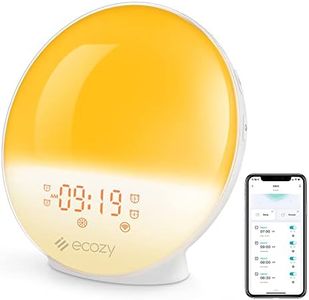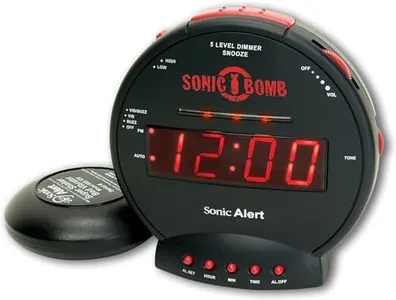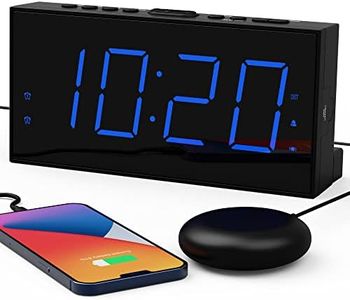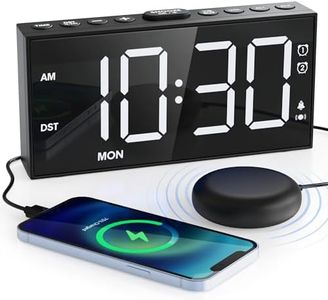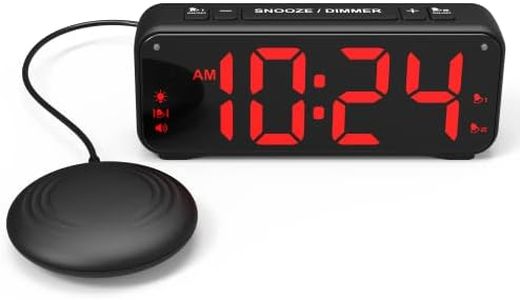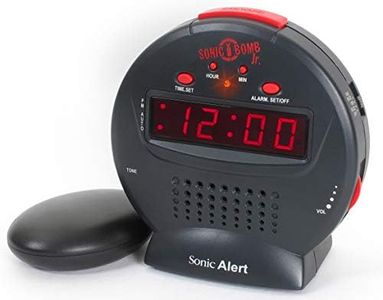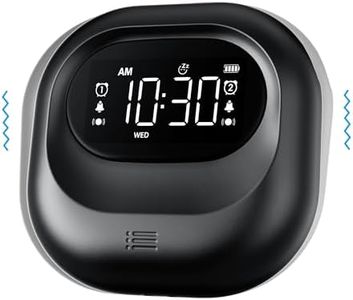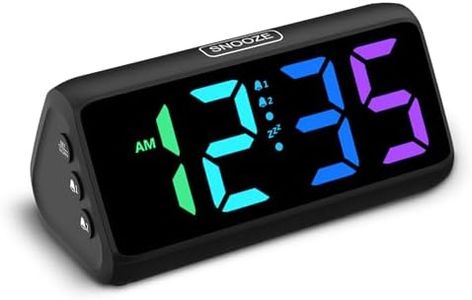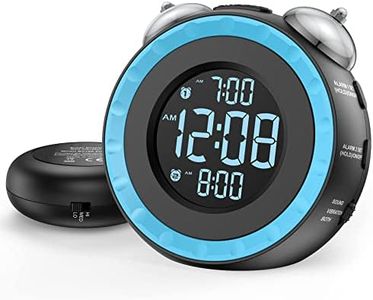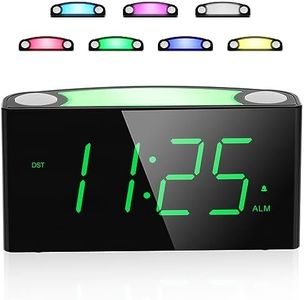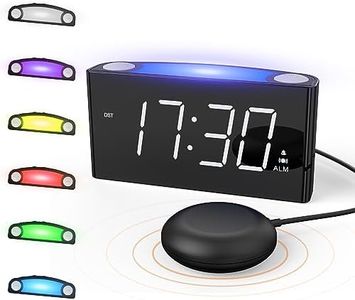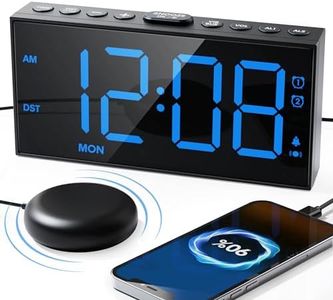We Use CookiesWe use cookies to enhance the security, performance,
functionality and for analytical and promotional activities. By continuing to browse this site you
are agreeing to our privacy policy
10 Best Alarm Clock For Heavy Sleepers
From leading brands and best sellers available on the web.Buying Guide for the Best Alarm Clock For Heavy Sleepers
Choosing the right alarm clock for heavy sleepers can make a significant difference in your daily routine. The key is to find a model that not only wakes you up but does so in a way that suits your personal needs and preferences. Here are some important specifications to consider when selecting an alarm clock for heavy sleepers, along with explanations to help you make an informed decision.VolumeVolume refers to how loud the alarm can get. This is crucial for heavy sleepers who may not wake up to a standard alarm sound. Alarm clocks typically range from 60 decibels (dB) to over 100 dB. For heavy sleepers, look for an alarm clock that can reach at least 80 dB. If you are extremely hard to wake, consider models that go up to 100 dB or more. Your need for a louder alarm will depend on how deeply you sleep and how much external noise you need to overcome.
VibrationVibration is an additional feature that can help wake heavy sleepers by providing a physical stimulus. Some alarm clocks come with a vibrating pad that you place under your pillow or mattress. The intensity of the vibration can vary, so look for models that offer adjustable settings. If you are a very deep sleeper, a stronger vibration might be necessary. This feature is particularly useful if you share a room and don't want to disturb others with a loud alarm.
LightLight-based alarms use gradual light to simulate a sunrise, which can help wake you up more naturally. This is important for heavy sleepers who may find it difficult to wake up to sound alone. The brightness and color of the light can vary, with some models offering customizable settings. If you are sensitive to light, a model with adjustable brightness levels will be beneficial. Consider how much light you need to wake up and whether you prefer a gentle or more intense light.
Multiple AlarmsMultiple alarms allow you to set several alarms at different times. This is useful for heavy sleepers who may need more than one reminder to wake up. Some models offer the ability to set different alarms for different days of the week. If you have a varied schedule or need multiple wake-up calls, look for an alarm clock that supports multiple alarms. This feature can help ensure you wake up on time, even if you tend to hit the snooze button.
Snooze FunctionThe snooze function allows you to temporarily silence the alarm and have it ring again after a short period. This is important for heavy sleepers who may need a few extra minutes to wake up fully. The duration of the snooze interval can vary, so look for models that offer adjustable snooze times. If you tend to rely on the snooze button, consider how long you typically need between alarms and choose a model that accommodates that preference.
Power SourceThe power source of an alarm clock can be either battery-operated, plug-in, or both. This is important for ensuring your alarm clock works reliably. Battery-operated models are portable and can be used anywhere, but you need to keep an eye on battery life. Plug-in models are more reliable for daily use but require a power outlet. Some models offer both options, providing flexibility and a backup in case of a power outage. Consider your lifestyle and where you plan to use the alarm clock to determine the best power source for you.
